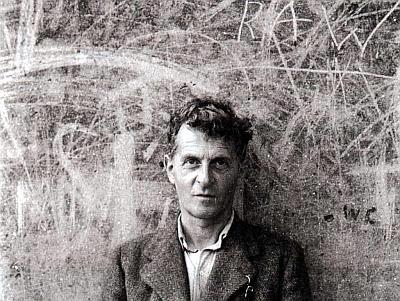The real discovery is the one which enables me to stop doing philosophy when I want to. - The one that gives philosophy peace, so that it is no longer tormented by questions which bring itself into question.

"40" (3): 281–289.
/ influenced = Bertrand Russell, G.E. Moore, Frank P. Ramsey, Vienna Circle, Rudolf Carnap, Alan Turing, G.E.M. Anscombe, Peter Geach, Anthony Kenny, Barry Stroud, Gilbert Ryle, Saul Kripke, John Searle, John McDowell, Hans Sluga, Peter Hacker, Stephen Toulmin, Hannah Ginsborg
/ website = [http://wab.aksis.uib.no/index.page The Wittgenstein Archives at the University of Bergen][http://www.wittgen-cam.ac.uk/cgi-bin/forms/home.cgi The Cambridge Wittgenstein Archive]
/ signature = File:Ludwig Wittgenstein signature.svg/125px
}}
"Ludwig Josef Johann Wittgenstein" (; ; 26 April 1889 – 29 April 1951) was an Austrian-British philosopher who worked primarily in logic, the philosophy of mathematics, the philosophy of mind, and the philosophy of language. From 1929–1947, Wittgenstein taught at the University of Cambridge. During his lifetime he published just one slim book, the 75-page Tractatus Logico-Philosophicus (1921), one article, one book review and a children's dictionary.For his publications during his lifetime, see Ray Monk/Monk, R., How to read Wittgenstein. W.W. Norton & Company. 2005, p. 5.
If you enjoy these quotes, be sure to check out other famous philosophers! More Ludwig Wittgenstein on Wikipedia.The limits of my language mean the limits of my world.
A confession has to be part of your new life.
Uttering a word is like striking a note on the keyboard of the imagination.
If people never did silly things, nothing intelligent would ever get done.
The world of the happy is quite different from that of the unhappy.
Knowledge is in the end based on acknowledgement.
Philosophy is a battle against the bewitchment of our intelligence by means of language.
One often makes a remark and only later sees how true it is.
You get tragedy where the tree, instead of bending, breaks.
If we spoke a different language, we would perceive a somewhat different world.
If there were a verb meaning 'to believe falsely,' it would not have any significant first person, present indicative.
I don't know why we are here, but I'm pretty sure that it is not in order to enjoy ourselves.
A man will be imprisoned in a room with a door that's unlocked and opens inwards, as long as it does not occur to him to pull rather than push.
Copyright © 2024 Electric Goat Media. All Rights Reserved.